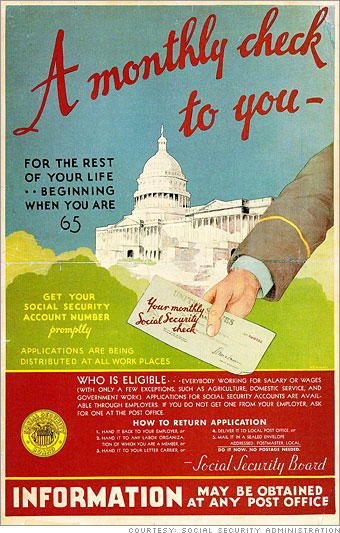Social Security isn't going the way of the LP record soon. Sure, the headlines are alarming. In just 10 years the cost of Social Security benefits will outstrip the amount that workers pay into the system, according to government studies. And by 2041 the Social Security trust fund reserves will run out, unless Washington gets around to addressing the problem.
But that doesn't mean Social Security will shut down. Enough new money will continue to flow into the program from payroll taxes to fund 70% to 75% of scheduled benefits until 2081. Andwith a few reforms, Social Security could continue to pay full benefits. "Compared with theother issues we face, such as financing health care, fixing Social Security is child's play," says Alicia Munnell, head of the Center for Retirement Research at Boston College."You could raise the payroll tax by just one percentage point for both employers and employees, and you would be able to fund full benefits for the next 75 years."
So it's a good bet that you can count on something close to what retirees collect today. The real issue is how big even a full benefit will be. "Most Americans think that Social Security will replace more of their income than it really does," says Dallas Salisbury, president of EBRI.
For the average retiree, Social Security currently covers only 39% of pre-retirement income; and if you earn more than the maximum taxable amount ($97,500 this year), Social Security will replace just 26%, on average, of the income you earned on the job. And those percentages will drop over the next 20 years to 33% and 20%, respectively. That's largely because Medicare Part B premiums, which are deducted from your Social Security check, are increasing at a faster rate than your benefit's annual cost-of-living adjustments.

